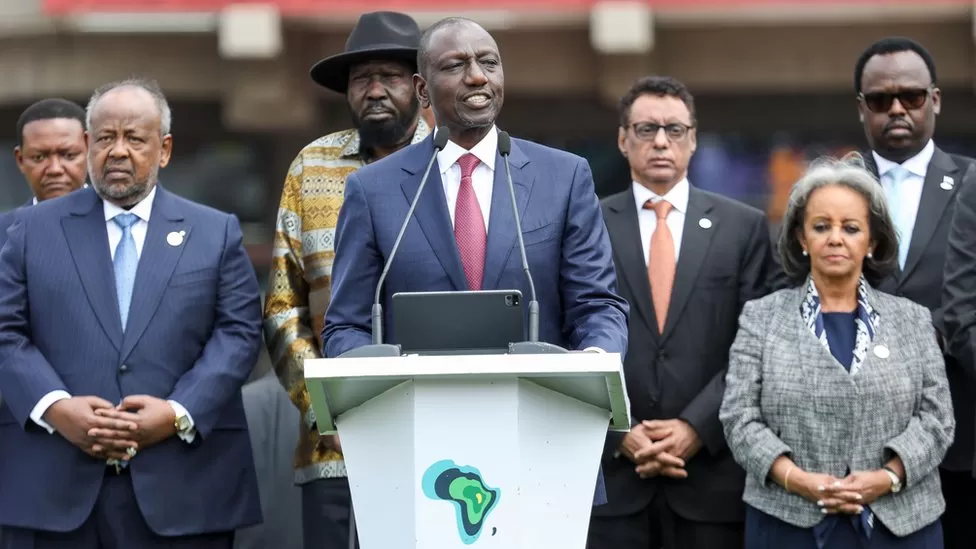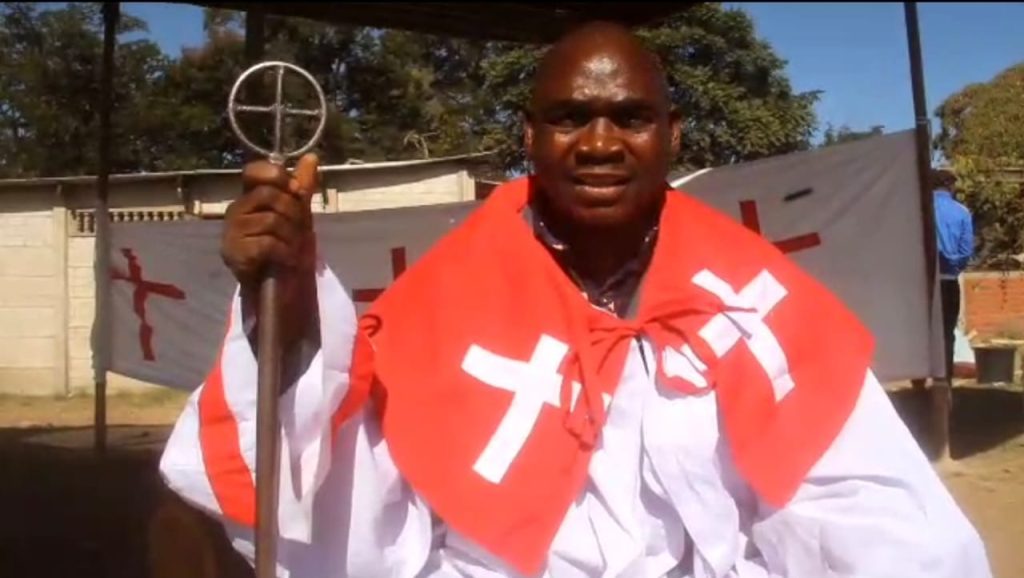The Nairobi Declaration capped the three-day Africa Climate Summit in Kenya’s capital.
The document, released on Wednesday, demanded that major polluters commit more resources to help poorer nations.
African heads of state said they will use it as the basis of their negotiating position at November’s COP28 summit.
- Climate change and crocodiles in a Kenyan lake
- What you should know about climate change in Africa
- How Africa will be affected by climate change
The African Climate Summit was dominated by discussions on how to mobilise financing to adapt to increasingly extreme weather, conserve natural resources and develop renewable energy.
Africa is among the most vulnerable continents to the impact of climate change, but according to researchers, it only receives about 12% of the nearly $300bn (£240bn) in annual financing it needs to cope.
The Nairobi Declaration urged world leaders “to rally behind the proposal for a global carbon taxation regime including a carbon tax on fossil fuel trade, maritime transport and aviation, that may also be augmented by a global financial transaction tax”.
Human rights activist Graça Machel told the BBC the declaration was “a huge step forward”.
“Africa is a player, the world cannot go without having Africa at the centre,” she said.
“Africa is not here to be helped. Africa is here to offer opportunities to offer investment, to offer solutions.”
The Nairobi Declaration said such measures would ensure large-scale financing for climate-related investments and insulate the issue of tax rises from geopolitical and domestic political pressures.
Around two dozen countries currently impose taxes on carbon, according to the International Monetary Fund (IMF), but the idea of a global carbon tax regime has failed to gain much traction.
On Tuesday, Kenya’s President William Ruto referred to past proposals in the European Union for a financial transaction tax.
Conservation groups in 2011 said money raised from the tax should finance environmental priorities, but the European Commission’s proposal never won the unanimous approval required from the European Council to become law.
Joab Bwire Okanda, a senior advisor at the Christian Aid charity, said the call for a global carbon tax was welcome but that “to make polluters really pay, false solutions like carbon credits that allow polluters a free ride without taking meaningful action need to be consigned to the dustbin”.
Some activists say the credits, which allow polluters to offset emissions by funding green activities, are a pretext for big polluters to keep emitting carbon dioxide.





